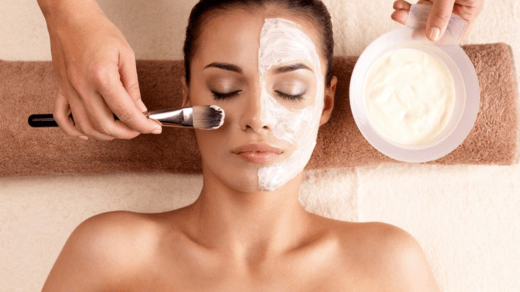Certainly! Here are 30 points along with their respective pros and cons for understanding the science of anti-aging in skincare:
1. Collagen Production:
- Pro: Stimulating collagen production can improve skin elasticity and reduce wrinkles.
- Con: Collagen creams may have limited effectiveness in penetrating the skin.
2. Hydration:
- Pro: Proper hydration maintains skin plumpness and reduces the appearance of fine lines.
- Con: Overhydration may lead to a heavy or greasy feeling.
3. Sunscreen:
- Pro: Sunscreen prevents UV damage, which is a primary cause of premature aging.
- Con: Some sunscreens may feel greasy or leave a white cast on the skin.
4. Antioxidants:
- Pro: Antioxidants like vitamin C combat free radicals and protect the skin from environmental damage.
- Con: Oxidation of some antioxidants can render them ineffective.
5. Retinoids:
- Pro: Retinoids stimulate cell turnover, reducing the appearance of wrinkles and fine lines.
- Con: They can cause initial dryness, redness, and sensitivity.
6. Peptides:
- Pro: Peptides can promote collagen production and improve skin texture.
- Con: Results may vary, and not all peptides are equally effective.
7. Hyaluronic Acid:
- Pro: Hyaluronic acid hydrates the skin and plumps fine lines.
- Con: It may not provide enough moisture for very dry skin.
8. Niacinamide:
- Pro: Niacinamide addresses various skin concerns, such as redness and uneven skin tone.
- Con: It may take time to see noticeable results.
9. Coenzyme Q10 (CoQ10):
- Pro: CoQ10 is an antioxidant that can reduce the signs of aging.
- Con: Some CoQ10 products may be expensive.
10. Alpha Hydroxy Acids (AHAs): – Pro: AHAs exfoliate the skin, promoting a smoother complexion. – Con: Overuse can lead to skin sensitivity and sun sensitivity.
11. Beta Hydroxy Acids (BHAs): – Pro: BHAs penetrate the pores and can help with acne and blackheads. – Con: They may be too drying for some skin types.
12. Microneedling: – Pro: Microneedling stimulates collagen production and can improve skin texture. – Con: It should be performed by a trained professional and can be uncomfortable.
13. Chemical Peels: – Pro: Chemical peels remove damaged skin layers, revealing smoother skin. – Con: They may require downtime and can cause redness and peeling.
14. Dermabrasion: – Pro: Dermabrasion exfoliates the skin and can improve the appearance of scars and wrinkles. – Con: It may require anesthesia and have a longer recovery time.
15. Laser Therapy: – Pro: Laser treatments can target specific skin concerns like age spots or wrinkles. – Con: They can be expensive and may require multiple sessions.
16. Nutrient-Rich Diet: – Pro: Eating a diet rich in antioxidants and essential nutrients supports skin health. – Con: Dietary changes may take time to show noticeable effects.
17. Facial Yoga: – Pro: Facial yoga exercises can improve muscle tone and reduce the appearance of sagging. – Con: Results may vary, and it requires consistency.
18. Sleep Quality: – Pro: Quality sleep allows the skin to repair and regenerate. – Con: Sleep disturbances, stress, or poor sleep habits can affect skin negatively.
19. Stress Reduction: – Pro: Reducing stress levels can prevent stress-related skin issues and signs of aging. – Con: Managing stress can be challenging and may require lifestyle changes.
20. Skin Biopsy: – Pro: A skin biopsy can provide valuable information about your skin’s condition and aging process. – Con: It’s an invasive procedure that may not be necessary for everyone.
21. Growth Factors: – Pro: Growth factor skincare products can stimulate cell renewal and collagen production. – Con: They can be expensive, and the effectiveness may vary.
22. Micellar Water: – Pro: Micellar water gently cleanses the skin and removes makeup without drying it out. – Con: Some formulas may not thoroughly remove waterproof makeup.
23. Diet Supplements: – Pro: Supplements like collagen or fish oil can support skin health. – Con: Excessive supplementation can have adverse effects.
24. Avoid Smoking: – Pro: Quitting smoking can prevent premature aging and improve overall health. – Con: Nicotine addiction can be challenging to overcome.
25. Facial Serums: – Pro: Serums can deliver high concentrations of active ingredients for targeted anti-aging benefits. – Con: They can be expensive and may require layering with other products.
26. Skincare Consistency: – Pro: Consistent use of anti-aging products can yield long-term benefits. – Con: Results may take time to become noticeable.
27. Avoid Alcohol-Based Products: – Pro: Alcohol-free products prevent skin from drying out. – Con: Some skincare products may contain alcohol for hold and texture.
28. Genetic Factors: – Pro: Understanding your genetic predispositions can help tailor your skincare routine. – Con: Genetics play a significant role, but environmental factors also impact aging.
29. Moisturizer Choice: – Pro: Choosing the right moisturizer for your skin type can maintain hydration and prevent dryness. – Con: Overly heavy moisturizers can clog pores and cause breakouts.
30. Consult a Dermatologist: – Pro: Dermatologists can provide personalized advice and treatments for anti-aging. – Con: Professional consultations can be costly, and results may vary.
Understanding the science of anti-aging in skincare involves a combination of effective ingredients, treatments, and lifestyle choices. It’s essential to tailor your anti-aging routine to your specific needs, considering factors like skin type, age, and existing skin concerns. Consulting with a dermatologist can provide valuable insights and personalized recommendations for achieving youthful, healthy skin.






